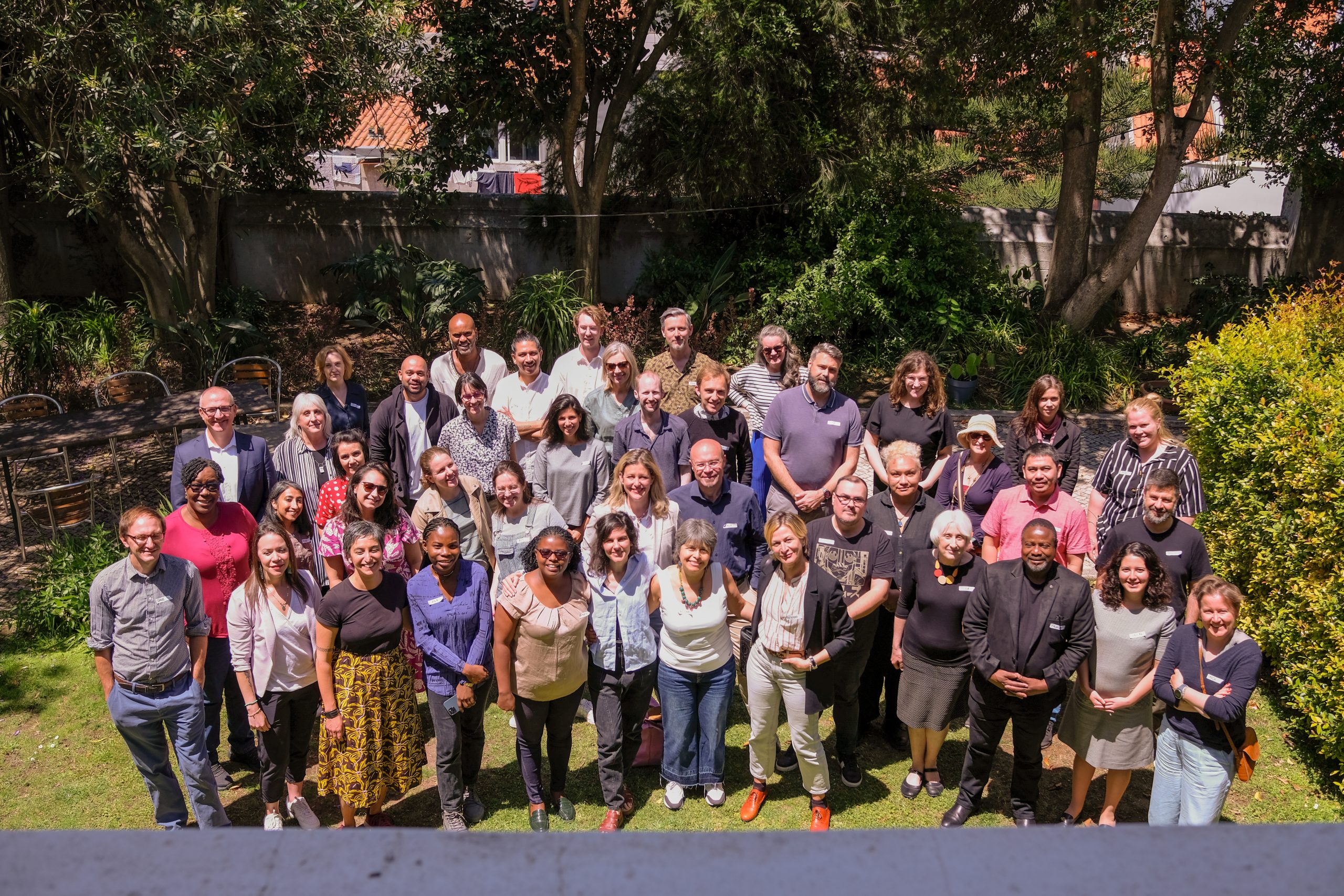Help us protect the commons. Make a tax deductible gift to fund our work. Donate today!
One year after Creative Commons (CC) hosted an exploratory Open Culture Roundtable, in Lisbon, Portugal, which initiated the Towards a Recommendation on Open Culture (TAROC) global initiative, nearly 50 stakeholders from all continents gathered again for a strategic workshop, in Lisbon, in May 2024. In this blog post, we share a snapshot of key highlights.
TAROC aims to support the international community in developing a positive, affirmative, and influential international normative instrument (possibly a UNESCO “recommendation”) enshrining the values, objectives, and mechanisms for open culture, notably open heritage, to flourish. Such an instrument would recognize the importance of global open sharing of cultural heritage as a means to activate and support wider cultural and information policy ambitions. Concretely, it would help remove undue barriers and promote equitable access to cultural heritage, especially in the digital environment, for a more inclusive and connected world.
The aim of the workshop was to build on the foundation previously laid and design a roadmap for future action. Over two productive days of collaborative work facilitated by Mona Ebdrup and Abdul Dube, a diverse collective of knowledgeable experts and driven activists articulated a shared vision for the elaboration of a UNESCO instrument.

Véronique Guèvremont (Université Laval and UNESCO Chair on the Diversity of Cultural Expressions) opened the workshop with an inspiring keynote on the challenges and opportunities that lie ahead and Claire McGuire (IFLA) led an eye-opening discussion with Lutz Möller (German UNESCO National Commission), Fackson Banda (UNESCO Memory of the World Program), Jaco Du Toit (UNESCO Access to Information), Peter Scholing (National Library of Aruba and Memory of the World Latin America and the Caribbean), and Harriet Deacon (University of Hull) who shared valuable insights on the important considerations to account for in the process towards a recommendation. Andrea Wallace (University of Exeter) and Teresa Nobre (Communia Association) offered key practical and policy advice to anchor openness in the cultural heritage sector. All participants shared invaluable input and showed deep engagement throughout the two days in Lisbon. Thank you all!
Here’s what some of the participants said about the workshop:
“How can we improve access to cultural heritage? How can open licenses and technologies help? How could a UNESCO Recommendation help that regard? In Lisbon, Portugal, Creative Commons has assembled some 50 experts from around the globe to discuss next steps. At Goethe-Institut e.V. Lisbon.” — Lutz Möller, Deputy Secretary-General for the German Commission for UNESCO, Germany
“The TAROC Strategic Workshop was an intense, yet super inspiring time in Lisbon, empowering to witness how the idea of having values behind Open Heritage translated into UNESCO recommendations is shaping up supported by the right mindset, energy and expertise of an amazing group of advocates from all over the world and it allowed me to hope the goal is achievable.” — Maja Drabczyk, Chair of the Board, Head of policy and advocacy, Centrum Cyfrowe, Poland
“Two days of discussion in Lisbon brought out the complexities, challenges, and many points of unity among people and sectors seeking to make the world’s creativity more accessible. It also brought home the realities of engaging with inter-governmental processes that have their own momentum and language. But we have a plan, and I left with a lot of energy!” — Matt Voigts, independent, Netherlands
“Very happy to take part in such interesting conversations around open culture, public domain, and the digital world surrounded by colleagues that I admire and have followed since I began my advocacy work within the digital rights environment. Thanks so much to Creative Commons” — Patricia Diaz, Executive Director, Wikimedia Chile, Chile
“The workshop inspired me a lot and helped me think of some ideas — hopefully I can implement some and write to you all with a collaboration proposal!” — Medhavi Gandhi, Founder, The Heritage Lab, India
“We gathered as a diverse team of experts and activists from around the world to strategize how open culture values might be embodied in a future UNESCO recommendation. There is much work to do, but we left energized and optimistic.” — Douglas McCarthy, Head of Library Learning Centre, Delft University of Technology, Netherlands
Furthermore, Minister of Finance and Culture of Aruba, Xiomara Maduro, stated in an official press release: “The global experts who participated in the discussions emphasized the importance of Open Culture in strengthening social resilience and fostering an environment of knowledge and experience sharing.”
Overall, the workshop consolidated broad community support and mapped out concrete next steps for the TAROC initiative. We are currently assessing the event’s rich outcomes and will be sharing more in-depth insights soon. Stay tuned!
Posted 07 June 2024